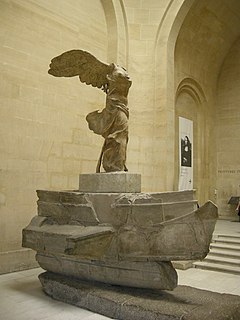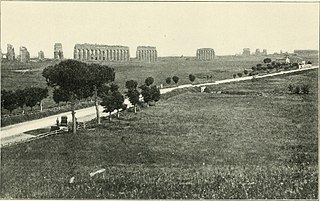
Sir Philip Anthony Hopkins is a Welsh actor, director, and producer. He won the Academy Award for Best Actor in 1992, and was nominated three additional times. Hopkins has also won three BAFTAs, two Emmys, and the Cecil B. DeMille Award. In 1993, he was knighted by Queen Elizabeth II for services to the arts. Hopkins received a star on the Hollywood Walk of Fame in 2003, and in 2008, he received the BAFTA Fellowship for lifetime achievement from the British Academy of Film and Television Arts.

Gerard Manley Hopkins was an English poet and Jesuit priest, whose posthumous fame established him among the leading Victorian poets. His manipulation of prosody established him as an innovative writer of verse. Two of his major themes were nature and religion.

The Johns Hopkins University is an American private research university in Baltimore, Maryland. Founded in 1876, the university was named for its first benefactor, the American entrepreneur, abolitionist, and philanthropist Johns Hopkins. His $7 million bequest —of which half financed the establishment of Johns Hopkins Hospital—was the largest philanthropic gift in the history of the United States up to that time. Daniel Coit Gilman, who was inaugurated as the institution's first president on February 22, 1876, led the university to revolutionize higher education in the U.S. by integrating teaching and research. Adopting the concept of a graduate school from Germany's ancient Heidelberg University, Johns Hopkins University is considered the first research university in the United States. Over the course of several decades, the university has led all U.S. universities in annual research and development expenditures. In fiscal year 2016, Johns Hopkins spent nearly $2.5 billion on research.
In Roman mythology Imporcitor was the deity of ploughing land with a wide furrow. He was one of the 12 helper gods of Ceres. He is also labeled as the maker of pigs. His name was invoked during the Cerealia, along with the other 11 helper gods of Ceres.
In Roman mythology, Reparator was the deity of the preparing fallow land for crops. He was one of the 12 helper gods of Ceres. His name was invoked during the Cerealia, along with the other 11 helper gods of Ceres.
In Roman mythology, Vervactor was the deity of ploughing fallow land. He was one of the 12 helper gods of Ceres. His name was invoked during the Cerealia, along with the other 11 helper gods of Ceres.

Matthew Hopkins was an English witch-hunter whose career flourished during the English Civil War. He claimed to hold the office of Witchfinder General, although that title was never bestowed by Parliament. His witch-hunts mainly took place in East Anglia.

From the 4th century BC on, new types of oared warships appeared in the Mediterranean Sea, superseding the trireme and transforming naval warfare. Ships became increasingly larger and heavier, including some of the largest wooden ships hitherto constructed. These developments were spearheaded in the Hellenistic Near East, but also to a large extent shared by the naval powers of the Western Mediterranean, more specifically Carthage and the Roman Republic. While the wealthy successor kingdoms in the East built huge warships ("polyremes"), Carthage and Rome, in the intense naval antagonism during the Punic Wars, relied mostly on medium-sized vessels. At the same time, smaller naval powers employed an array of small and fast craft, which were also used by the ubiquitous pirates. Following the establishment of complete Roman hegemony in the Mediterranean after the Battle of Actium, the nascent Roman Empire faced no major naval threats. In the 1st century AD, the larger warships were retained only as flagships, and were gradually supplanted by the light liburnians until, by Late Antiquity, the knowledge of their construction had been lost.
Online Mendelian Inheritance in Man (OMIM) is a continuously updated catalog of human genes and genetic disorders and traits, with a particular focus on the gene-phenotype relationship. As of 12 February 2017, approximately 8,425 of the over 23,000 entries in OMIM represented phenotypes; the rest represented genes, many of which were related to known phenotypes.

The Atellan Farce, also known as the Oscan Games, were masked improvised farces. The games were very popular in Ancient Rome, and usually put on after longer pantomime plays. The origin of the Atellan Farce is uncertain but the farces are similar to other forms of ancient theatre, such as the South Italian Phlyakes, the plays of Plautus and Terrence, and Roman mime. Most historians believe the name is derived from Atella, an Oscan town in Campania. The farces were written in Oscan and imported to Rome in 391 BC. In later Roman versions, only the tridiculous characters read their lines in Oscan, while the others read in Latin.
Hayden White was an American historian in the tradition of literary criticism, perhaps most famous for his work Metahistory: The Historical Imagination in Nineteenth-Century Europe (1973/2014). He claimed that the manifest historical text is marked by strategies of explanation, which include explanation by argument, explanation by emplotment, and explanation by ideological implication. He argued that historical writing was influenced by literary writing in many ways, sharing the strong reliance on narrative for meaning, therefore eliminating the possibility of objective or truly scientific history. White also argued, however, that history is most successful when it uses this "narrativity", since it is what allows history to be meaningful. He ended his career as University Professor Emeritus at the history of consciousness department of the University of California, Santa Cruz, having previously retired from the comparative literature department of Stanford University.
Thomas Robert Shannon Broughton, FBA was a Canadian classical scholar and leading Latin prosopographer of the twentieth century. He is especially noted for his definitive three-volume work, Magistrates of the Roman Republic (1951-1986).

The Johns Hopkins University Press is the publishing division of Johns Hopkins University. It was founded in 1878 and is the oldest continuously running university press in the United States. The Press publishes books, journals, and electronic databases. Considering all its units it is a contender for America's largest university press. Its headquarters are in Charles Village, Baltimore.

ELH is an academic journal established in 1934 at Johns Hopkins University, devoted to the study of major works in the English language, particularly British literature. It covers developments in literature through historical, critical, and theoretical methods. The current editor-in-chief is Douglas Mao.
Mammal Species of the World: A Taxonomic and Geographic Reference is a standard reference work in mammalogy giving descriptions and bibliographic data for the known species of mammals. It is now in its third edition, published in late 2005, which was edited by Don E. Wilson and DeeAnn M. Reeder.

Eva Cantarella is an Italian classicist. She is professor of Roman law and ancient Greek law at the University of Milan, and has served as Dean of the Law School at the University of Camerino.
Paul Rodney McHugh is an American psychiatrist, researcher, and educator. He is University Distinguished Professor of Psychiatry at the Johns Hopkins University School of Medicine and the author, co-author, or editor of seven books within his field.
The Brooke's duiker is a species of antelope. It is distributed throughout Liberia, Sierra Leone and Côte d'Ivoire. It was elevated to species status.
Insitor was, in Ancient Roman religion, a minor agricultural deity involved with the sowing of crops. His name was invoked during the Cerealia, along with the other 11 helper gods of Ceres.
Papyrus Oxyrhynchus 267 is a fragment of an Agreement of Marriage, in Greek. It was discovered in Oxyrhynchus. The manuscript was written on papyrus in the form of a sheet. It is dated to 22 May 37. Currently it is housed in the Milton S. Eisenhower Library of the Johns Hopkins University in Baltimore.









